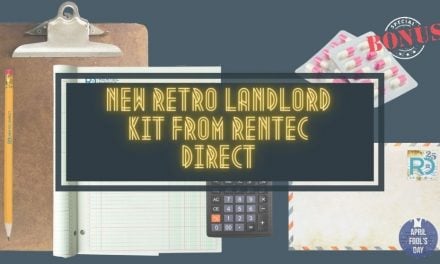
Investment properties have a good reputation, but they aren’t the only investment strategy.
Aside from real estate, many people invest by owning stocks and bonds. Stocks are an actual share of ownership in a company, which is typically publicly traded. Bonds are loans issued by governments and corporations. Companies and governments who issue bonds agree to pay back buyers over time with interest.
So which should you pursue? Invest in a house or corporate stock? An apartment complex or a mutual fund that tracks the S&P 500? What about inflation and taxes?
If you’re deciding on an investment strategy, here are the benefits you should keep in mind when it comes to investing in real estate.
Maintaining an income-oriented investment and positive cash flow
Perhaps the most substantial benefit of investing in real estate compared to stocks is that many real estate investments are income-oriented and come with a positive cash flow.
In theory, a rental property comes with consistent payment from tenants. Each month, you receive payment, so if your tenants are trustworthy, you can anticipate cash flow each month.
Stocks come with more risk. The market has been wobbly in the past year, so $100 invested in an S&P 500-indexed fund in April 2022 was worth $92 by April 2023.
Leverage and lower borrowing costs
Buying often means borrowing, and investing in real estate offers the ability to borrow more for less.
For example, investors often borrow close to 80% of a property’s purchase price through a rental property loan. In time, you receive payment from tenants that pay off the property’s mortgage and make it possible to pay back the loan.
In comparison, stock investors are not given such an advantageous borrowing option. You may be able to borrow about half of a stock’s cost in order to purchase, but brokerages have the right to force you to sell other stocks to recover the loan if the stock struggles.
Building equity
As with all forms of property ownership, an advantage of investing in real estate compared to stocks or bonds is that you buy into equity.
At its core, equity is the difference between how much a property is worth and how much you owe on your mortgage. As you generate rental income and pay your mortgage, those monthly payments and your down payment buy you greater ownership in your own property. Housing values generally rise over time, so you will likely have full ownership of a property that is worth more than what you paid for it.
Having somewhere to live if needed
Americans frequently report that the high cost of housing is a problem for their checkbook and sense of security and well-being.
Owners of investment properties are largely insulated from these concerns. After all, if you own an investment property, you have a place to call home if moving becomes necessary. Housing, compared to stocks and bonds, is a real, physical commodity — you can use it if you need it, and if you invest in it, you’ll be less likely to live without a roof over your head.
Hedging against inflation
Inflation has remained high, despite the Federal Reserve’s actions to tamper it.
For stock and bond investors, inflation is stressful. Interest rate raises have made for a volatile stock market, and the real return on investment from bonds decreases when the value of the dollar falls.
Real estate investors, however, are better off. After all, owning real estate has always been a hedge against inflation, as the cost of property rises alongside the cost of everything else. And the rent payments that make up real estate investors’ income can be raised when leases expire.
Tax advantages
The tax man always gets paid, but real estate investors catch some breaks. That’s because of tax breaks and deductions, including:
- Real estate tax write-offs, including property taxes, insurance, mortgage interest, and property management fees. Plus, business expenses such as advertising and business equipment can be written off by some investors.
- Pass-through deductions, which allow you to deduct up to 20% of your qualified business income on your personal taxes.
- Depreciation, in which you can categorize your investment property as a net loss even if the property produces positive cash flow.
- 1031 exchanges, in which one real estate investment is swapped for another, saving you money on capital gains.
Compared to stocks, the advantages of real estate tax breaks are pretty persuasive.
Learn more: Tax Deferred 1031 Exchange Basics for Investors
Control over your investments and your returns
While stocks confer ownership, buying shares of Disney doesn’t mean you’ll be commissioning a new ride at Disneyland or storyboarding the next “Frozen” sequel. Real estate investing is different: investing in real estate gives you real control over your investments and your returns.
If you want to embark on renovations that improve the value of your property, you can make it happen. If you want to raise or lower the rent to match market demand, it’s your call. If you want to sell the property, go ahead; if you want to buy another property, it’s up to you.
In this way, real estate investing provides control over your investments and your returns. With stocks and bonds, you’re at the whim of other institutions, which may be frustrating.
Real estate investment trusts (REITs) pay dividends
Stocks and bonds come with dividends, but real estate investments can, too.
Real estate investment trusts (REITs) are publicly traded companies that own, operate, and finance income-producing properties, such as commercial buildings or rental units. You can invest in REITs as you would stocks and receive regular dividends.
This way, you can invest in real estate without actually buying and managing a property — marrying the high returns of stocks with the safety and cash flow of bonds and investment properties.







I always read about real estate and stocks and bonds since I am confused on which is more profitable and high in investments. This blog clarified my doubts and confusion, I have learned a lot.
Glad you found it helpful!
This article provides a clear overview of the advantages of investing in real estate, such as consistent income, leverage opportunities, equity building, tax advantages, and control over investments. It is a helpful read for individuals exploring real estate as an investment option.
Good thing I came across this, my family’s been looking for a house and lot for sale in Quezon or any properties. Thanks for this! 🙂
Love the emphasis on positive cash flow and income stability with real estate investments. Solid advice!
Glad you liked it, Omar!
This is my first time reading an article about investing, and it was interesting to learn that real estate can offer more control and cash flow compared to stocks, plus the idea of using equity for growth was new to me. Do you have any advice for beginners who want to start in real estate?